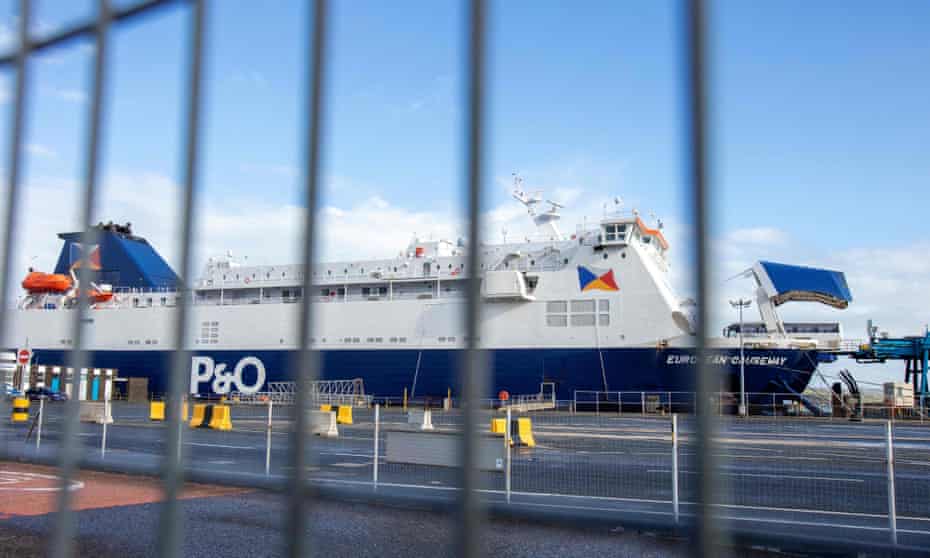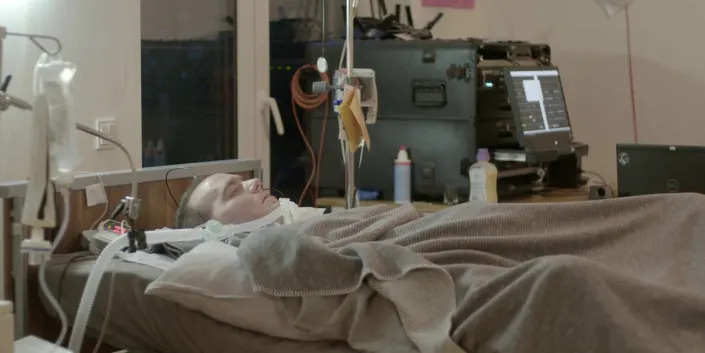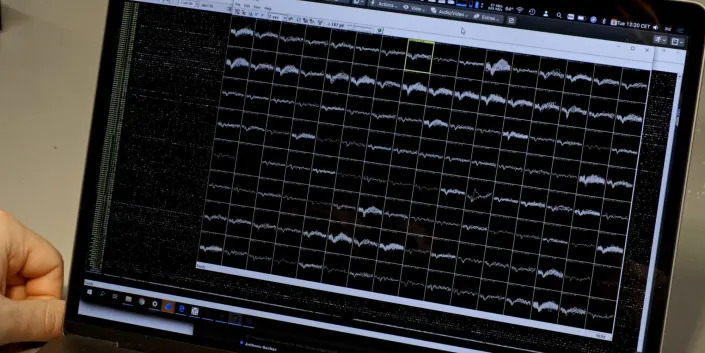The transport secretary is expected to close loopholes to ensure ferry companies pay the UK minimum wage

Rupert Jones
Grant Shapps is writing to the chief executive of P&O Ferries urging him to announce a U-turn on the decision to sack 800 workers without notice, as unions pledged to “ratchet up the fight” after a weekend of protests.
The transport secretary is expected to present a package of legislation on Wednesday to close loopholes and ensure ferry companies running regular services to and from the British Isles pay their crew the UK minimum wage.
Government officials are understood to be meeting the rival operators Stena Line and DFDS on Monday to discuss the legislation, along with measures to tackle possible Easter travel chaos if services remain disrupted.
Fresh demonstrations against the sackings are planned for this week, with the RMT union turning its attention to P&O Ferries’ supply chain, including the maritime agencies involved with recruiting workers. The union said there would be a protest outside the Glasgow offices of Clyde Marine Recruitment, which describes itself as Europe’s leading supplier of marine personnel, on Monday morning.
Demonstrations took place in Liverpool, Dover and Hull on Saturday as the outcry continued over P&O Ferries’ decision to sack its crews and replace them with cheaper foreign workers.
The firm’s chief executive, Peter Hebblethwaite, admitted last week that it broke the law by dismissing the workers without consultation. He told a Commons hearing on Thursday: “There’s absolutely no doubt we were required to consult with the unions. We chose not to do that.”
It is understood Shapps will write to Hebblethwaite to say there is still time for the firm to reconsider its strategy,and it may as well act because otherwise the government will force its hand.
After calls from MPs and others for emergency action to be taken, the minister has pledged new legislation designed to make sure ferries using UK ports observe the national minimum wage, which is currently £8.91 an hour, rising to £9.50 on 1 April.
Meanwhile, a P&O Ferries source told the PA news agency that it conducted a study last year into options, which calculated it would cost £309m to keep the business going through a consultation period of at least three months, costs that would have seriously undermined the business and possibly dealt a fatal blow.
The RMT’s general secretary, Mick Lynch, has already called for the government to seize P&O’s fleet of ships, and for crew who were sacked without being consulted or given any notice to be reinstated.
Lynch said on Sunday: “There will be more protests, more campaigning and more political pressure this week as we ratchet up the fight and harness the public anger at the jobs carve-up on our ferries.” He claimed there would be “nowhere to run and nowhere to hide” for those involved.
On Sunday P&O Ferries said it would be “unable to run some of our services over the next few days”. As of Sunday afternoon, sailings from Dover to Calais were cancelled up to and including Thursday 31 March, and those between Larne and Cairnryan in Scotland remained suspended. Monday’s service between Rotterdam and Hull has been cancelled.
The government is subjecting all P&O ferries to inspections before allowing them back into service. One ship, the European Causeway, was impounded in Northern Ireland on Friday by the Maritime and Coastguard Agency after being deemed “unfit to sail” after an inspection found “failures on crew familiarisation, vessel documentation and crew training”.
At the moment passengers due to travel on some routes such as Dover to Calais are typically being advised by P&O Ferries that “we will get you away on an alternative carrier” such as DFDS, though it is unclear what will happen if rivals are fully booked, as may be the case over Easter.







